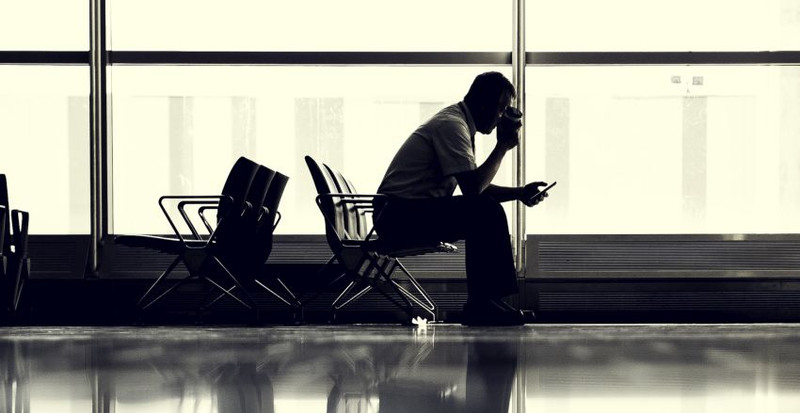For those of us who fly the friendly skies, whether as a frequent or occasional flyer, there are times the skies aren't so friendly. Such as when we cross two or three – or more – time zones and find ourselves in a brain fog once we reach our destination. If lost luggage, delayed or canceled flights, and pockets of turbulence aren't bad enough, then there's the problem of trying to sleep (or stay awake) at the appropriate times after we touch down on that long-distance, out-of-town excursion. Those of us already battling insomnia before we strap ourselves into our seat, well, what can we say? Good luck with that. Ditto dealing with daytime fatigue, problems concentrating, skewed functionality, and, sometimes, even stomach issues. So, you still love air travel and going to faraway places? The more time zones you cross, per webmd.com, the longer and more acute the symptoms will likely be. Jet lag and recovery time can typically eat up more than half the time you are away: a 10-day trip from the U.S. West Coast to Europe can mean six to nine days of recovery; traveling in the opposite direction, jet lag lasts only about half as long, consistent with the premise that jet lag is typically worse when traveling west to east (when you lose time).
What Causes Jet Lag?
It begins with knowing about our circadian rhythm, which is the biological clock that helps regulate when we fall asleep and when we awaken. Cues such as light exposure, mealtimes, social engagement, and activities regulate our circadian rhythm, says Allison T. Siebern, PhD, of the Stanford University Sleep Medicine Center, quoted at webmd.com. When you cross time zones, it disrupts those, and your internal clock and the external time are desynchronized. Your body needs to get on the rhythm of the new time zone. Another factor affecting how our minds and bodies handle air travel is air pressure, as in pressurized airplane cabins. This effectively reduces oxygen in the blood, potentially leaving passengers uncomfortable and dehydrated. That combined with passengers' limited movement during an hours-long flight can enhance the effects of jet lag, further throwing off body clocks. If it's any consolation, managing our time and sleep habits against a backdrop of long-distance travel dates back well into the nineteenth century, as travel by train developed over longer and longer distances. Then came the jet-travel age, starting in the late 1950s. The hardest trip for me is coming back from Asia or Australia, says airline captain John M. Cox, quoted at travelandleisure.com. It's not that I can't sleep. It's that I keep waking up at two in the morning.How to Deal with Jet Lag
Fending off or reducing the effects of jet lag can begin well in advance. In fact, they should begin a day or two before you board the plane. Here are some tips:- Pack some melatonin. This natural hormone regulates our body's sleep-wake cycle, and this is the kind of help you need far away from home. Be sure to consult with your physician, though, as melatonin can interact with other medications you are taking, per health.com.
- Include some lavender oil, too, while you're at it. This also helps with insomnia on the road (as well as at home, as needed). Also works well in the form of aromatherapy bath salts.
- Pycnogenol. A dietary supplement extracted from the bark of pine trees. Shown to reduce jet lag symptoms during a 2008 study that involved subjects taking 50 milligrams three times daily starting two days before the outbound flight. Those volunteers showed significantly fewer ill effects – such as fatigue, insomnia, and mental slowness – compared to those who took a placebo, per health.com.
- Gradually adjust your sleep/wake schedule starting about a week ahead of time to conform to your destination. If you're traveling west to east, go to bed an hour earlier, then maybe two hours earlier (if you will be crossing two or more time zones), before you fly. If going east to west, do the opposite, stay up an hour or two later.
- Once you get buckled in on the plane, change your watch to conform to your destination's time zone. This helps you get into the mind-set of what you'll be doing in the place where you're going, says Dr. Siebern, per webmd.com.
- If your schedule allows it, get there two or three days early. Give yourself time to acclimate to the new time zone before whatever it is you have to do central to the purpose of your trip. You want to be hitting on all cylinders.
- Stay hydrated. Drink plenty of water before, during, and after the flight. Along with that, steer clear of caffeine and alcohol. Remember, pressurized cabins can lead to dehydration.
- As soon as you arrive, force your body to transition to the local time. Get out in the daylight, take a walk, get some fresh air, whatever, per ricksteves.com, to help you stay awake until as close as possible to the local sleep time. This will be tough for the first day, maybe two, but it will quicken your transition.
- Stretch. Do what you can during the flight. Get up, walk around, do some knee bends, stretch your arms over your head, touch your toes, etc. Self-conscious because other passengers are staring at you? Let 'em. You'll feel better after you arrive – they won't. The last laugh is yours.

